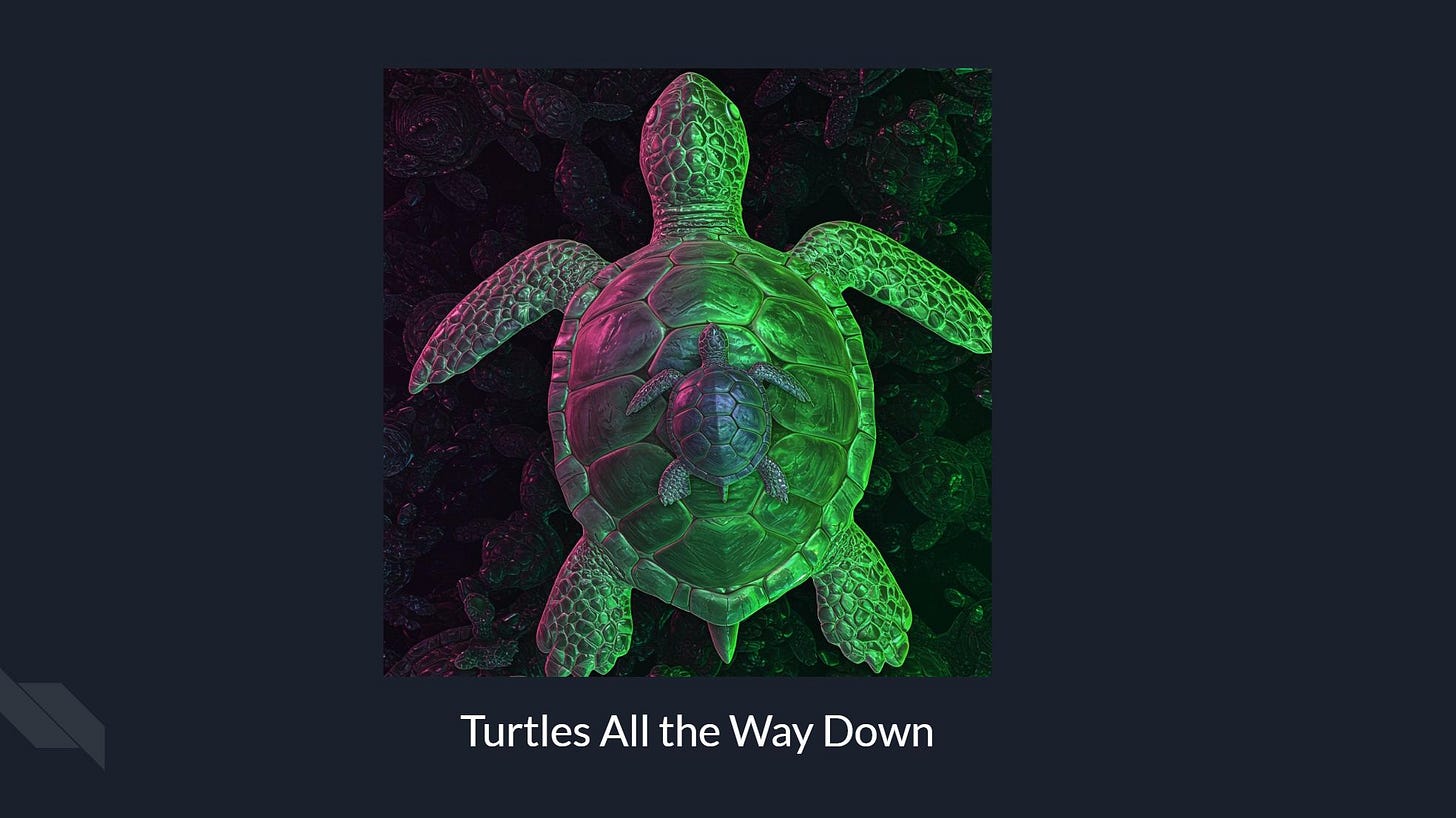How Deep Do Buffer Stocks Go?
Student Seminar
Opening Comments
Sometimes, a week just doesn't go your way. The lead-up to this presentation was one of those weeks for me—challenging, distracting, and not exactly the ideal headspace for public speaking.
As a result, the delivery in the video below isn't as polished as I would like. I see the moments where the clarity isn't quite there, where the flow isn't as smooth as it should be.
So why share it? Because the ideas in it are too important to leave on the cutting room floor because of a bad week. The framework I explore here—about buffer stocks, institutional design, and economic resilience—is a project I am deeply committed to. I believe it offers a better way to think about the complex crises we face.
I'm sharing this in the spirit of a work-in-progress and an invitation to engage with the substance. I hope you'll look past the rough edges of the presentation and dig into the core of the argument with me.
An Introduction to "How Deep Do Buffer Stocks Go?"
In an age of overlapping crises, from pandemics to climate change, how can we better understand and manage our complex, interconnected economy? In this research presentation, I propose a powerful and universal answer: "buffer stocks all the way down."
I argue that buffer stocks, reserves that absorb shocks and provide stability, are not just isolated policy tools (such as a Job Guarantee or a grain reserve), but a fundamental, fractal-like principle that operates at every scale of our society. From household savings to the global financial system, these mechanisms are the key to economic coordination and resilience.
This presentation offers a glimpse into a new and evolving framework for thinking about these issues. As you watch, look out for these key concepts:
The Economic Coordination Matrix (ECM): A new analytical tool I've developed to map the different ways we use price and quantity controls to organise our economy.
The Instrumental vs. Ceremonial Spectrum: A powerful lens from institutional economics I use to understand the tension between technically effective solutions and the social habits that can constrain them.
Fractals and "Turtles All The Way Down": A guiding metaphor for how these patterns of coordination and stability repeat themselves at different levels, from the micro to the macro.
This talk synthesises bold ideas from Modern Monetary Theory, complexity science, and institutional economics to ask deep questions about how our world is, and could be, organised.
Taking Action - Where to Go From Here
If you've found this analysis valuable, here are some ways to continue exploring these economic concepts:
Share this article with others who might benefit from a clearer understanding of economic realities
Join the conversation in the comments below—I'd love to hear your thoughts and questions
Subscribe for free to receive my weekly economic insights directly in your inbox
Explore related articles in my archive that build on these concepts [optional: link to 1-2 specific related posts]
Understanding how our economy actually works empowers you to see beyond mainstream narratives and recognise what's truly possible for Australia.
Have a specific economic question you'd like me to address in a future post? Let me know in the comments!
Unmask Economics with Me
Economics has a dirty secret: no one really knows how this thing works.
Sure, we've got models. Equations. Theories backed by centuries of academic papers. But then reality hits - a pandemic, a banking crisis, a random tweet from Elon - and suddenly, those elegant models look more like elaborate fiction.
We're done pretending.
These draft papers aren't polished academic work. They're our attempt to rebuild economic theory from the ground up. We're looking at everything from Indigenous trading systems to modern monetary mechanics, asking questions like:
What if we've completely misunderstood how taxes work? (Our Strategic Preparatory Financing paper suggests we have.)
What if the economy isn't about equilibrium but about buffer stocks all the way down? (Orthodox economists are already pushing back on this one.)
What if the informal networks keeping communities alive during crises aren't just stopgaps but the foundation of how economies actually function?
Some of these ideas will fail. Some might fundamentally change how we think about economics. Either way, paid subscribers get a front-row seat to the mess. You'll see every draft, every revision, every moment where we realise we got it wrong and have to start over.
No promises of getting rich. No pretence of having all the answers. These are just real attempts at understanding how this complex system actually works.
Think of it as peer review, but before the peers get their hands on it.
Achieve Financial and Mental Wellness
Looking for effective resources to help overcome financial stress and anxious thoughts? This subscription has you covered.
As a paying subscriber, gain unlimited access to 5 powerful tools absolutely free:
A comprehensive eBook guides transforming your finances through proven habits and strategies.
4 Anxiety-Busting wall posters that provide techniques to quiet worried thoughts and build resilience. Great for personal or professional use!
Whether you seek tools for personal growth or your mental health practice, these science-backed resources can significantly boost well-being over the long run.
Subscribe now to empower yourself and your clients with an all-inclusive wellness toolkit. Finally, take command of money mindsets and unlock healthier, wealthier lives for all. Your future of financial peace and mental ease is just a click away!
If you enjoyed this post, please consider buying me a coffee by pressing the button below.





Everyone's kitchen and wardrobe is a buffer stock, unless you shop for groceries and do the laundry every day.